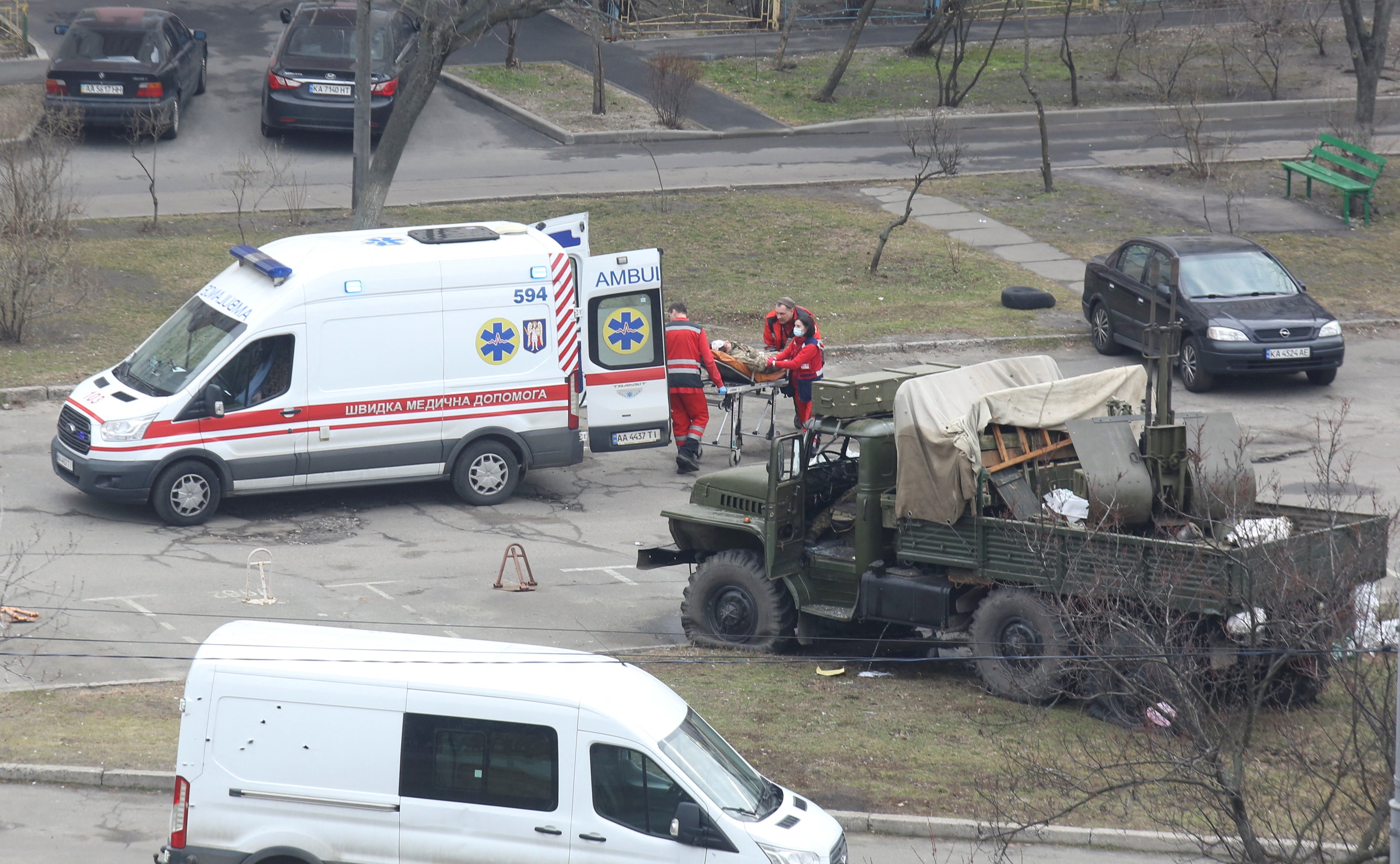UK sends ambulances and fire engines to Ukraine and lifts tariffs to help country’s exporters
New ban to close loophole on exports of repressive equipment to Russia

Your support helps us to tell the story
From reproductive rights to climate change to Big Tech, The Independent is on the ground when the story is developing. Whether it's investigating the financials of Elon Musk's pro-Trump PAC or producing our latest documentary, 'The A Word', which shines a light on the American women fighting for reproductive rights, we know how important it is to parse out the facts from the messaging.
At such a critical moment in US history, we need reporters on the ground. Your donation allows us to keep sending journalists to speak to both sides of the story.
The Independent is trusted by Americans across the entire political spectrum. And unlike many other quality news outlets, we choose not to lock Americans out of our reporting and analysis with paywalls. We believe quality journalism should be available to everyone, paid for by those who can afford it.
Your support makes all the difference.The UK is to send new ambulances, fire engines and medical supplies to Ukraine, and waive tariffs on goods imported from the country, as part of the continuing programme of support in its fight against Russian invasion.
Meanwhile, a new extension of sanctions against Moscow will ban the export of products such as interception and monitoring equipment, which could be used in the repression of Ukraine, closing loopholes to ensure Russia cannot source such goods from the UK.
The lifting of tariffs was a key request from Ukraine’s president, Volodymyr Zelensky, to support the country’s producers and traders at a time when it is facing a massive hit to GDP, forecast to contract by more than 35 per cent in 2022 due to Russia’s unprovoked attack.
Ukrainian exports – including, barley, honey, tinned tomatoes and poultry – were previously subject to tariffs averaging about 22 per cent, but all will now be reduced to zero.
International trade secretary, Anne-Marie Trevelyan, said: “The UK will continue to do everything in its power to support Ukraine’s fight against Putin’s brutal and unprovoked invasion and help ensure the long-term security and prosperity of Ukraine and its people.
“We stand unwaveringly with Ukraine in this ongoing fight and will work to ensure Ukraine survives and thrives as a free and sovereign nation.”
Meanwhile, prime minister, Boris Johnson, announced the UK is sending a further 22 ambulances to Ukraine, while a fleet of more than 40 fire engines has just arrived in the country, in response to direct requests from the Kyiv administration.
The fire engines are packed with thousands of items of rescue equipment, such as 300 fire hoses, thermal imaging cameras for finding victims and almost 10,000 items of protective clothing, in the largest deployment of its type to leave the UK.
There have been more than 130 attacks on healthcare facilities since the invasion and the UN has recorded about 4,800 civilian casualties. More than 100 fire stations and 250 fire engines have been destroyed in Ukraine.
Frontline medical aid charity UK-Med will receive government funding of up to £300,000 to help train Ukrainian doctors, nurses and paramedics. They will also set up mobile health clinics to support the most vulnerable civilians remaining in Ukraine.
Mr Johnson said: “We have all been appalled by the abhorrent images of hospitals deliberately targeted by Russia since the invasion began over two months ago.
“The new ambulances, fire engines and funding for health experts announced today will better equip the Ukrainian people to deliver vital health care and save lives.
“Together with our military support, we will help to strengthen Ukraine’s capability to make sure Putin’s brutal invasion fails.”
UK-Med CEO, David Wightwick, who is currently in eastern Ukraine as it faces a fresh onslaught from Russian troops, said: “I’ve seen with my own eyes the devastating impact of this cruel war. Ensuring the more than 7 million internally displaced people across the country have access to vital primary health care is and will continue to be of the upmost importance for many months to come.”
Join our commenting forum
Join thought-provoking conversations, follow other Independent readers and see their replies
Comments